|
The Chandler Family Association is an association of descendants of the Chandler Family. Chapter 13, , http://chandlerfamilyassociation.org/chapter13.html,of this association is dedicated to the descendants (of which Carl O'Neil is one) of Edmund Chandler who arrived in Plymouth around 1629 and was settled in Duxbury by 1633. The association's Summer, 2015 newsletter reported on the Chandler history of the O'Neil Farm. Their timeline lists Edmund's participation in Duxbury civic activities and as a land owner acquiring real estate throughout the South Shore.
For more information visit: http://chandlerfamilyassociation.org/chapter13/timeline.html. This article has been gathered from many resources including the deed research on the property compiled by Robert L. Dente Duxbury, MA in June 2007. It has also been edited and reviewed by Barbara and Carl O'Neil. The article provides a descriptive timeline of the Ebenezer Avery family from 1866 to 1891 leaving a farming legacy to Carl, Edward, and Barbara O'Neil through their great grandmother Rosamond "Avery" Chandler - wife of Horatio Chandler.
early 1900s - about 1960s: In addition to dairy farming, the O'Neil family has harvested and sold corn, potatoes, turnips, and various other vegetables. They were trucked to local stores, like, Jack Nathan at Halls Corner in Duxbury and Steele and Farrington in Kingston.April 27, 2004 Duxbury Clipper Newspaper Article by Tony Kelso "The Story of the O'Neil Farm"2/13/2014
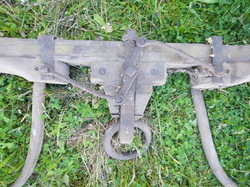 Donated by Mr. Delano. Many oxen yokes were designed to harness the power of a team of two oxen. The yoke is made up of pair of bows that the farmer or teamster would put around the oxen’s neck. Hanging from the yoke between the two bows there was often a ring or some other mechanism that attached the yoke and the oxen to the load, whether that load is a wagon, a log or a plow. This particular yoke may have been used for hauling freight. These sliding yokes were developed in New England.  from article posted in the Spring 2013 newsletter Among the historical treasures at the Historic O’Neil Farm is the antique forge donated by Dean and Jean Fisher. the forge is another example of how things were done many years ago. Blacksmiths and ferriers might use forges to repair iron wagon parts or shoe horses. A small forge, like the one at the farm, could have been moved from place to place if necessary but was probably kept in one area to be close to tools, fuel and a workspace. The farm’s forge includes a fire pot where coal would have heated iron until it was red hot and malleable. A bellows or possibly a crank blower would have been fitted to the bottom of the fire pot to blow air on the coal to generate even more heat. Though we do not have the anvil or other tools that went with this forge, one can imagine tines being used to move red-hot iron onto an anvil where a blacksmith would hammer iron into whatever shape needed. We do not know exactly how old the forge is. But it harkens back to a time before the nearby store where one could by a replacement part for just about anything. A time when a farmer might have to repair a bent tool or fashion a new iron piece in order to do what needed to be done. Standish, Alden, Delanoy (Delano) are just of few of the Duxbury early family names that can be found listed in the 1627 division of livestock previously held as common property of the Plymouth colony residents. source: " Records of the Colony of New Plymouth, in New England: Deeds, &c., 1620-1651 ..." By New Plymouth Colony page 9. |
|||||||

|
|
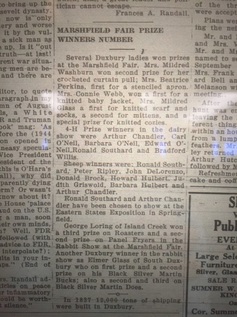
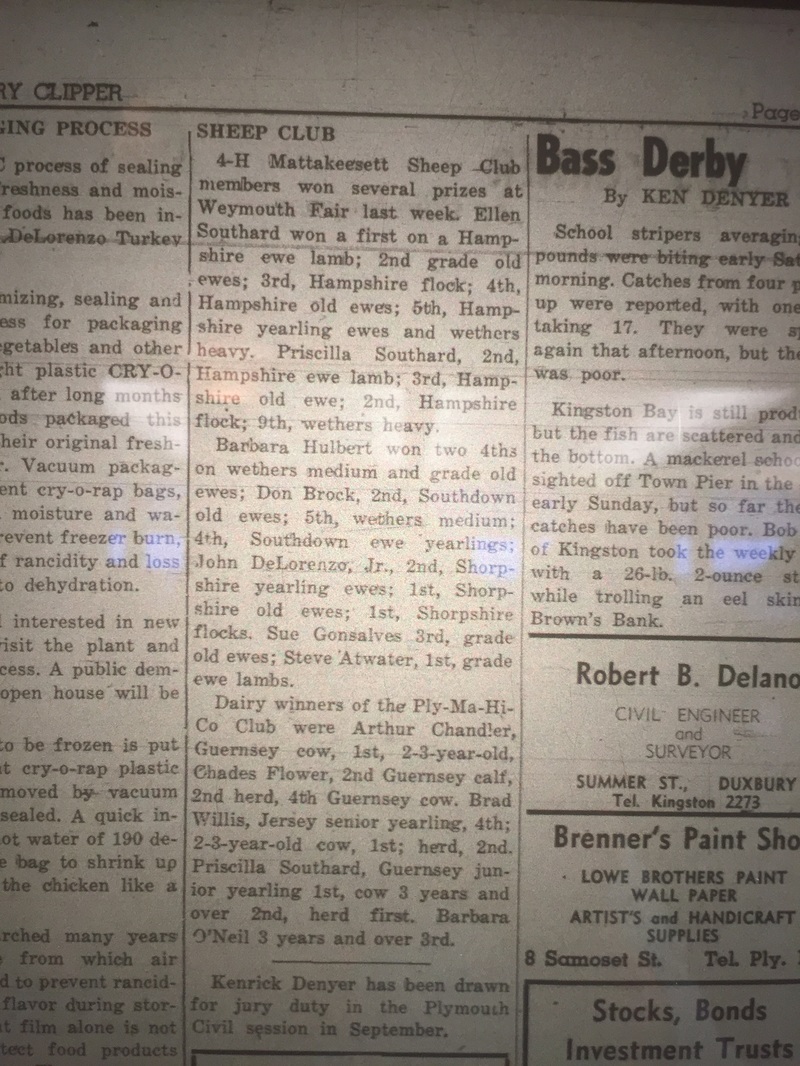
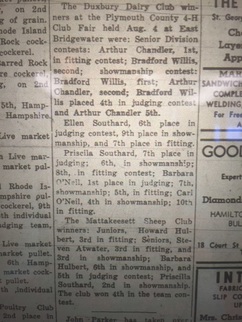
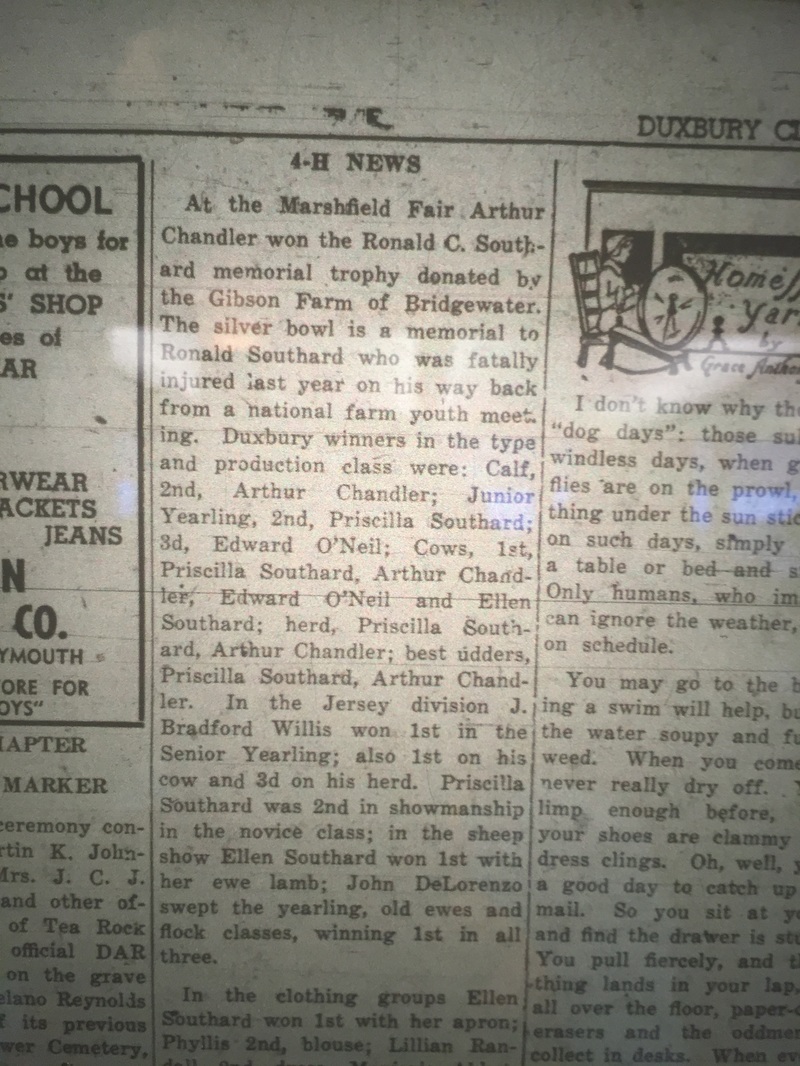
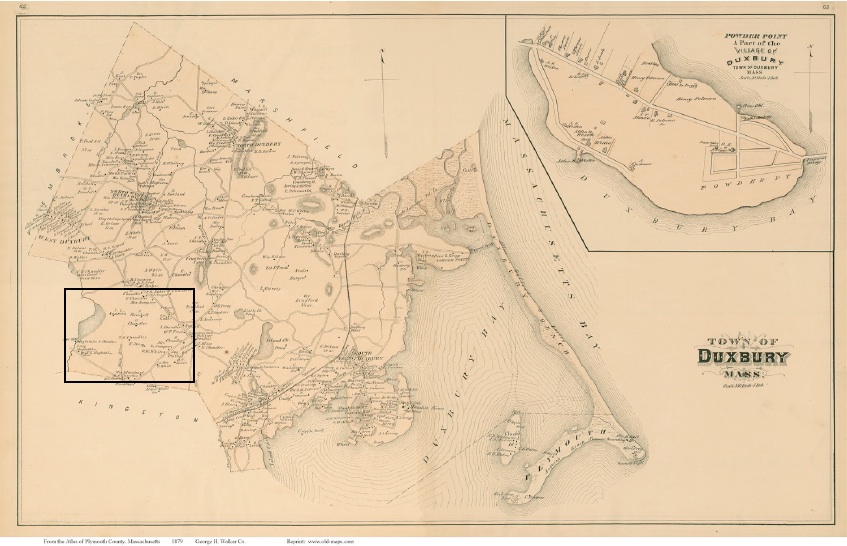
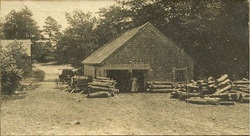
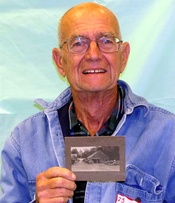
 RSS Feed
RSS Feed
